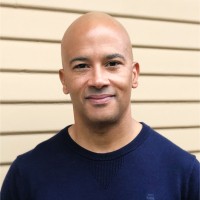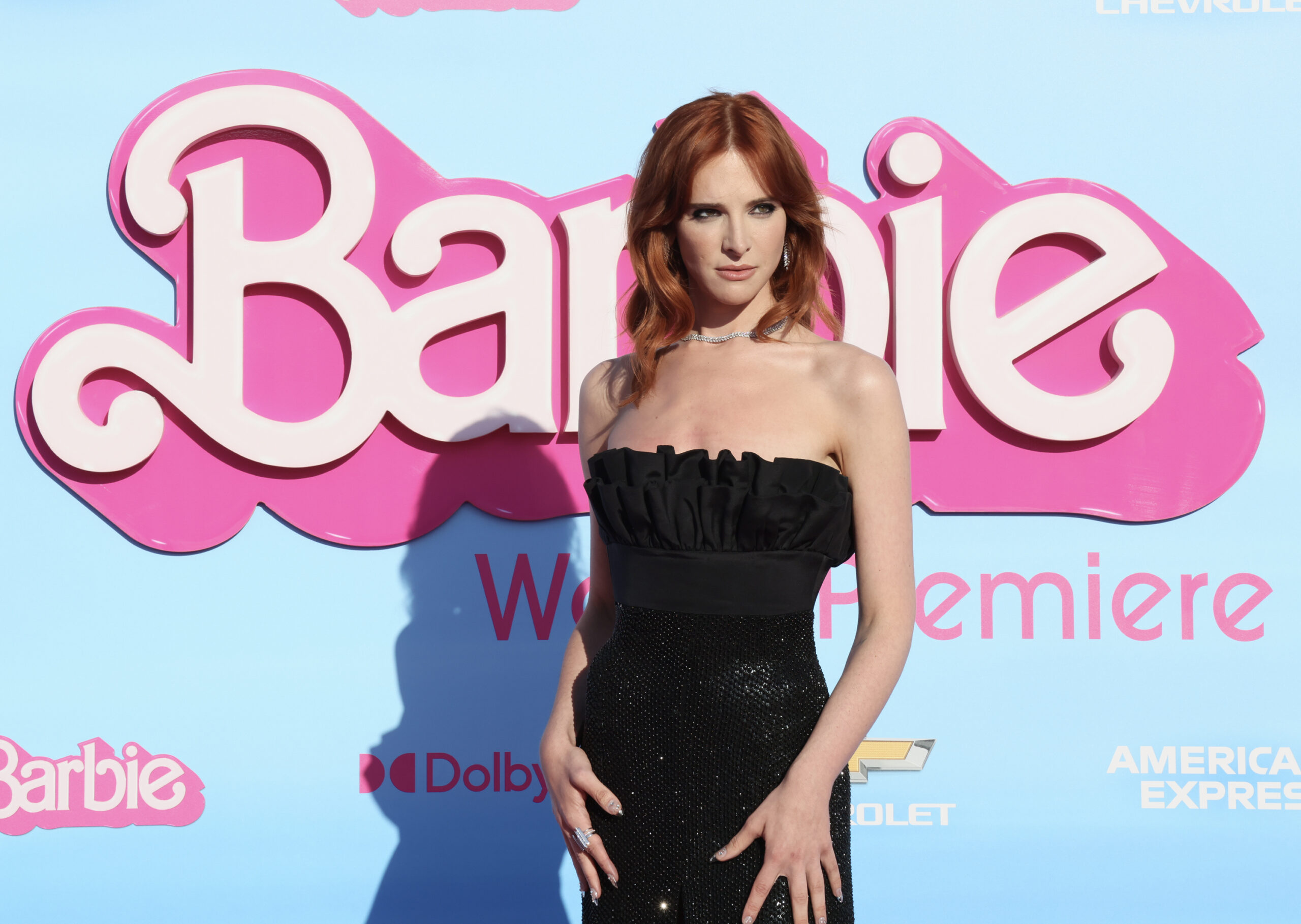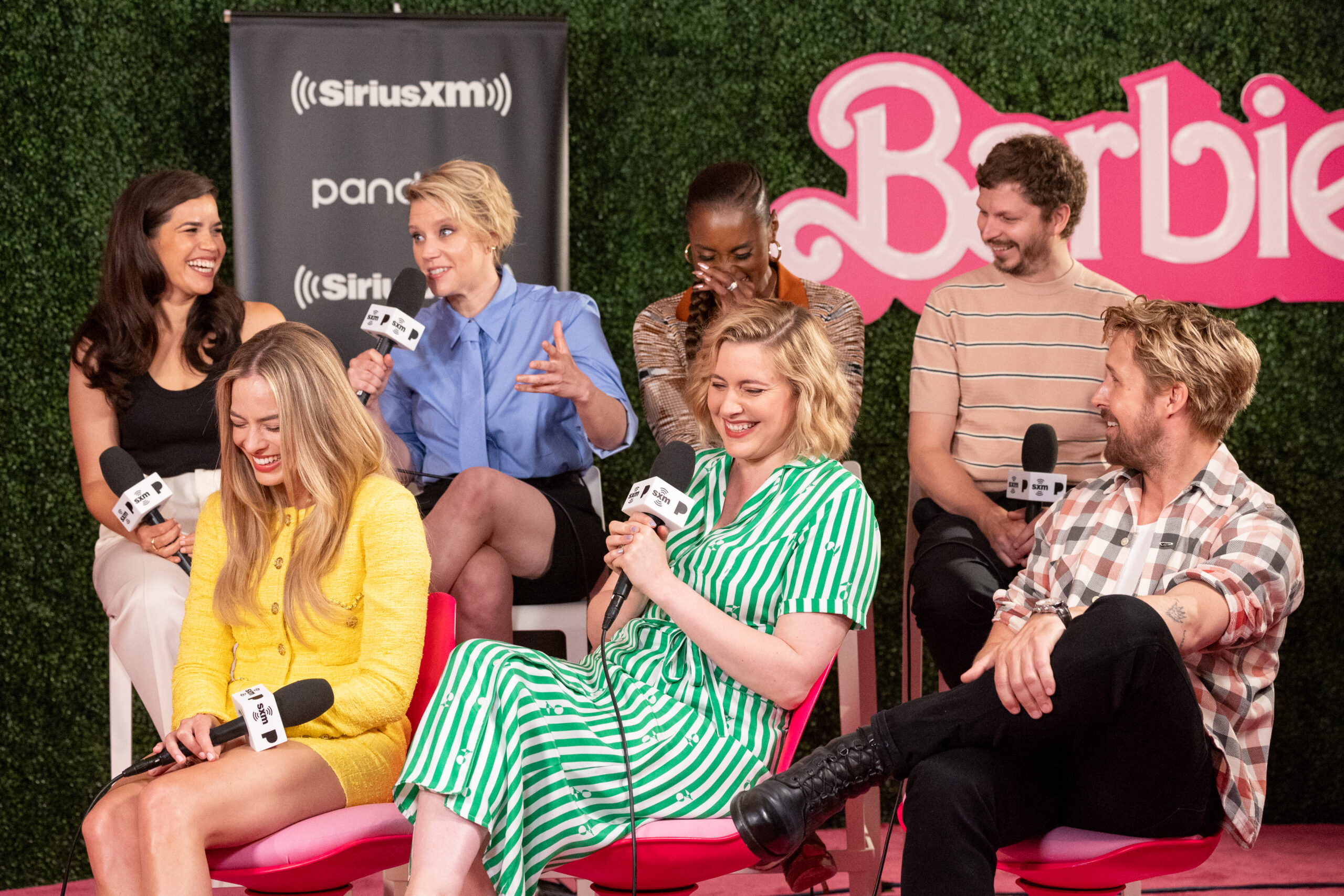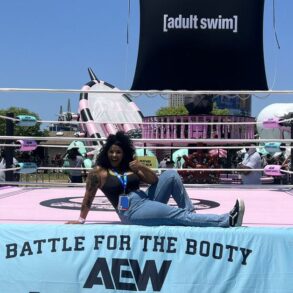“Hi, Barbie!”
To haters’ chagrin, the “Barbie” movie starring Margot Robbie has lit up every aspect of fashion, meme culture and women’s (and men’s, and everyone in-between’s) empowerment. And that campy, joyful call and response is a symbol of the revolution.
For Mason Williams, Mattel’s global head of diversity, equity and inclusion, “Barbie” isn’t a next step in his company’s DEI goals. It’s the core of the brand’s identity, he told HR Dive.

Mason Williams, Mattel’s global head of diversity, equity and inclusion
Mason Williams
“If you think about it, Mattel’s an almost 80-year-old company now. The idea from the beginning was to create the greatest toys on Earth for everyone,” Williams said. “That is inherently a position of representation. Now, that wasn’t explicitly said, like ‘This is representation.’ But the goal was to do that and to expand that to to empower the wonder of childhood for all.”
The thing about being a labor reporter is that, ironically, it’s impossible to turn your work brain off.
Something that struck me as clever was the way “Barbie” satirized corporate America — from the sterile, passionless cubicles filled with miserably compliant pencil-pushers, to the homogenous cadre of White men dominating the C-suite. Imagine that, Barbie!
In the Real World, even women’s empowerment is meted out by a homogenous group of men.
I could see why some men, particularly White men, would bristle. But many men — of diverse backgrounds — have expressed nothing but unanimous joy to me after I asked them what they thought of the movie. I’d like to think “Barbie” has a little something for everyone, considering how Greta Gerwig poked fun at the senselessness and harm of toxic masculinity, while also highlighting its appeal.
For HR practitioners, managers and executives who haven’t quite bought into DEI — or are wavering in their courage amid attacks on the philosophy — my conversation with Williams illuminated the real business case for DEI to the tune of more than $1 billion.
This interview has been edited and condensed for clarity.
HR DIVE: How long have you been at Mattel and what is your role as a global head of DEI like?
MASON WILLIAMS: I started at Mattel 13 years ago, and I started as a toy and game designer. When I came here, I was hired to be a game producer., but I quickly wanted to start making things. I moved into a group where basically we created physical toys that were controlled by mobile devices. I created the first generations of those kinds of games for about eight years. I ran a design and development group while I was here; I was always very involved in our employee resource groups.
I was president of Black at Mattel since my third week here, and then I eventually became the executive sponsor. I’ve spent a lot of time working with talent acquisition. I’ve always been very involved, anywhere I’ve been. This was the first big company I’ve ever worked at, but as a kid, I was always very socially active. My mission has always been partly to increase representation.
I come from a family where we serve. I come from segregation parents and my grandparents grew up in Jim Crow — and were the town’s doctors and teachers. So my sister and I’ve been raised to always give and be a part of the community.
Fast forward to 2020: I started thinking about what I want the next iteration of myself to be.
I talked about [moving into the global head of DEI role] with [Executive VP and Chief People Officer] Amy Thompson, whom I report to, and Chief Design Officer Chris Down. Both really thought it was a great play for me and I was prepared, and so I took on this role in 2021.
Mattel is [an] almost 80-year-old company now, and the idea from the beginning was to create the greatest toys on Earth for everyone. DEI [is]at the core of who we are. If we think of diversity as meaning we’re counting the people in the room, [creating a culture of inclusivity means] making everyone feel as if they count when they’re in that room — and that the room looks like the world that we serve.
Doing good and doing good business are not at odds; they actually amplify each other. We see that in the worldwide phenomenon of the movie.
There’s a reason why everyone says, “Hi, Barbie.” Because everyone is Barbie and everyone can be. And I think that there’s a beautiful thing to that.

Hari Nef attends the World Premiere of “Barbie” at Shrine Auditorium and Expo Hall on July 9 in Los Angeles. The transgender actress plays Barbie in the 2023 film.
Rodin Eckenroth/WireImage
It’s really cool to hear you, in your position at Mattel, say explicitly that it’s just a combination of all the work that Mattel has been doing and the foundation that Mattel has laid. And of course, people always talk about how “you can’t be what you can’t see.” Being able to see that representation is so, so important.
Exactly. The way that I say it is in reverse: “If you see it, you can be it.” On screen that’s important —whether it’s kids, adults, who cares.
We’re seeing things everyone needs to see — the world in which we live, in the way we actually envision it. But also when I walk around the halls here and across all of our different campuses, I see it here. I’ve been here long enough to see the demographic changes and of course, we’re on a journey. We’re not on a path to perfection. We feel very lucky and very thankful and grateful for the fact that our products really inspire wonder at the end of the day. It would be antithetical if we did not operate the way that we set out to do
Having worked at Mattel for a long time, can you talk a little bit anecdotally about the demographic changes that you’ve seen and then how that has contributed to the culture?
The toy industry is a relatively small industry; if you’re designing in the toy industry, there’s a good chance that you’ve worked at Hasbro, Mattel, Spin Master and Jakks Pacific.
Internationally, it’s slightly different, but it’s a small community. That means that communities are already kind of insulated, so the representation expansion takes a concerted effort.
I’ve seen the representation of people of color grow. I’ve seen the commitment to growth in the LGBTQ+ community. We’ve seen representation of women at different levels of the company continue to rise; we see these trends going up.
Doing good and doing good business are not at odds; they actually amplify each other. We see that in the worldwide phenomenon of the movie.

Mason Williams
Global Head of DEI, Mattel
[Mattel is] taking really explicit actions, goals and business plans to make sure that representation is increased.
For example, when I came here in 2010, there was still backlash about body image. But in 2016, there were nine body types and other hairstyles increased. So that progress is being shown there. And it’s been shown in other brands as well, whether it’s through “Monster High” or the representation in “Hot Wheels.” Even though you think, “Well, those are cars.” Well, no, it’s the way that you also make sure that everyone can feel included in those vehicle experiences. There’s Latino culture; there’s Black car culture. You start to see the expansion in all of these different ways.
What that’s done is make us feel like a young 80-year-old company. We’re getting more Gen Z folks coming into our workforce than ever now. That’s going to steadily rise, naturally. But we’re proud to say “we’re attractive” because people are aligning their professional goals with companies that they resonate with, that they can feel a kinship to. That’s how employment is not transactional. Employment is developmental for both parties.
Like I said before, it’s a journey. It’s something that we’re going to continue to focus on and hold ourselves accountable, and be able to have sometimes conversations that are uncomfortable, because the point is you want to improve.
I really appreciate you talking about DEI as a journey, not like a destination, and talking about the discomfort. I’ve been a DEI reporter since 2021. I’ve observed people are so scared of having a misstep, saying or doing the wrong thing, or making the mistake that hurts someone that they are kind of frozen. They’re not able to improve because they lack that openness.
I appreciate that. Everyone should be a little nervous of a misstep or a transgression. But, first I would ask, “What’s your intent? What’s the purpose? What is the focus? What will we all learn?”
I’m sure you’ve talked to some companies where it feels like they’re just dotting i’s and crossing t’s — like a performance. And you know, that’s cool too. I’m not doing too much of that.
In our corporate structure, my job reports directly to the chief people officer. So there’s one step between me and the CEO. We’re taught that we have leadership commitment from top down or from the bottom up, however you want to say it. This is a commitment.
And then you know, the fact that they got a toy guy and said, “he can run DEI” — I think it was also a statement of saying, “No, this is how we do it. This is who we are as a company.” It wasn’t like they said, “Oh, we’re gonna do a nationwide search for the global head of DEI”. They’re like, “No, we got a guy who used to make toys. In fact, he won a toy award last year, but now he’s gonna run DEI.”
Of course, I also put in work. It wasn’t just wished upon a star. It was calculated, like 48 years of living culminating in a moment. It was not willy-nilly by any ways or means, but it was a stretch. A lot of people say, “Oh, gee, you need to have the HR background.”
There’s a reason why everyone says, “Hi, Barbie.” Because everyone is Barbie and everyone can be.

Mason Williams
Global Head of DEI, Mattel
To be honest, the way we approach it here is that DEI is partially everyone’s responsibility. Your responsibility to come to work is to make it feel as if you could be the full version of Caroline. My job is to be the full version of Mason, and I should make sure that everyone has that ability. In that sense, DEI is everybody’s [responsibility]. I just happen to have the title, you know.
What is your vision for DEI at Mattel beyond this moment?
I see us continually staying on this pattern. We’ve only done nothing but double down more on what we believe and we believe that representation matters — and not just in the products and experiences that we create, but in the way we’re developing our talent. I want to continue to see the commitments that we have to increasing representation, and making sure there’s equal space and equal room for us. So I feel like those are now like givens and table stakes, but I really believe that that’s something we can continue to do.

America Ferrera, Margot Robbie, Kate McKinnon, Greta Gerwig, Issa Rae, Michael Cera and Ryan Gosling appear on SiriusXM’s “The Jess Cagle Show” at SiriusXM Studios on June 26 in Los Angeles.
Emma McIntyre via Getty Images
Also, like in five years, it’d be awesome if my job didn’t exist. Where it was just like, “This is just what it is.” [Maybe] there’s an office of culture and we don’t call it “DEI” or whatever. But I mean, it’s gonna be there.
I think that speaks to the idea that this is all of our responsibility, and it’s just a part of our Mattel culture. Culture is not not defined or redefined in a singular moment. It takes time, it takes sustained effort, it takes more and more commitment. I think that is what I would like to see — that the conversation just becomes normalized.






